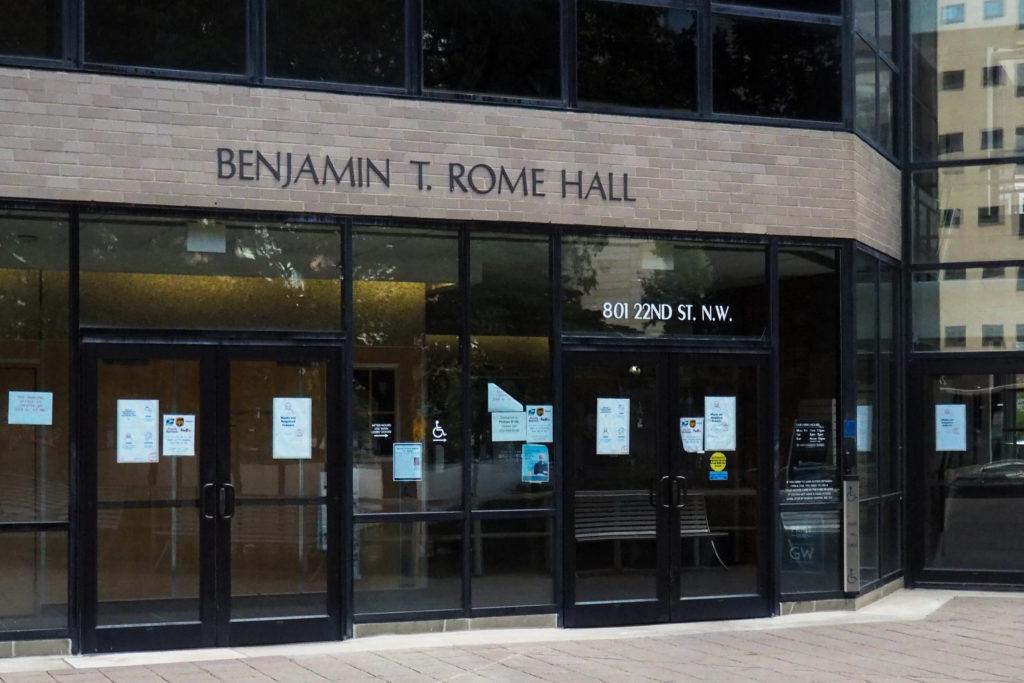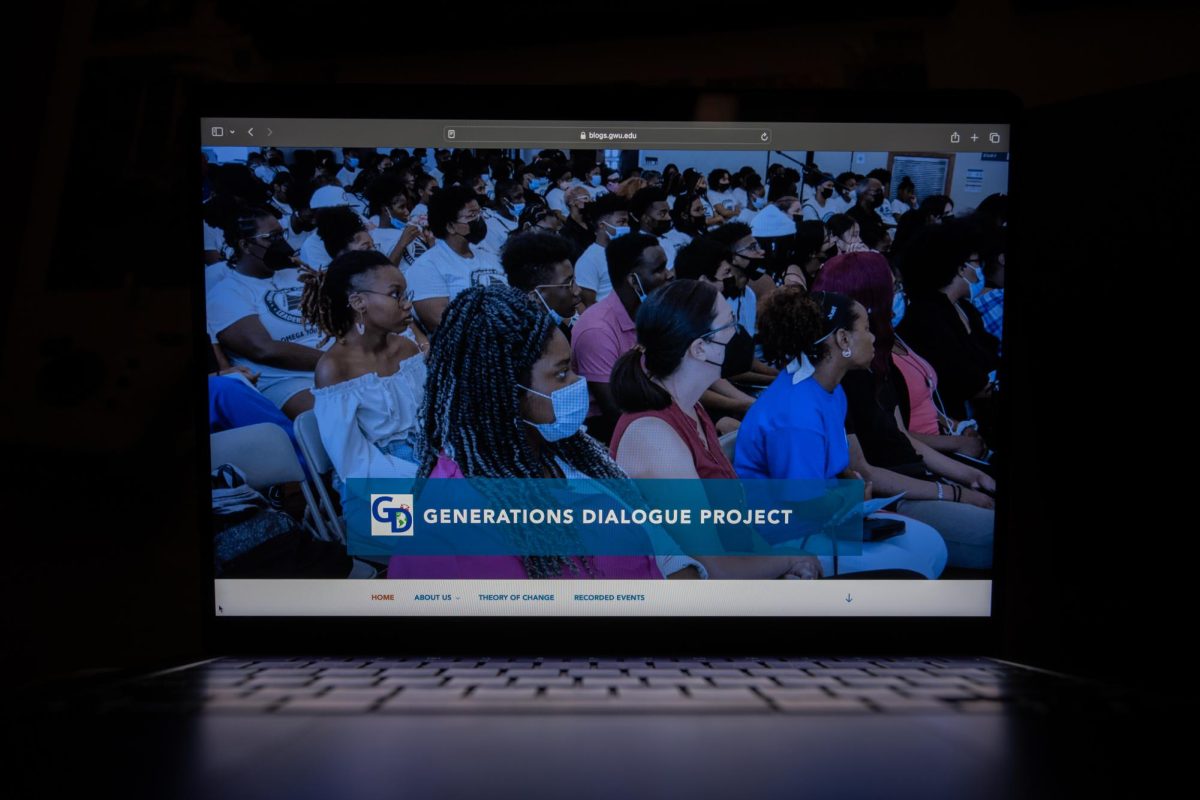Two months after the GW community returned to campus, faculty who were hired during the virtual academic year said they are still adjusting to teaching in-person classes at GW for the first time.
At least 10 professors who joined the University during the COVID-19 pandemic said despite being in the midst of their second year at GW, they consider themselves “new” to campus life and are interacting with many of their students and colleagues in person for the first time. Faculty said they had to redesign their courses for in-person learning after last year’s virtual instruction on top of ongoing concerns about contracting the coronavirus.
Eric Schluessel, an assistant professor of history and international affairs who started teaching at GW last fall, said transitioning back to in-person instruction has been “stressful.” He said teaching in person has been “anxiety-inducing” because everyone is still learning to adjust back to post-pandemic life without the virtual element of teaching classes through a screen.
“It’s strange, even moving around the halls again, being inside, going from class to class,” Schluessel said. “We’re all just getting used to being outside again, that is outside in the world.”
He said he prefers teaching in person after connecting with and motivating students became “inefficient” during online instruction. He said while he no longer has to wake up at 6:30 a.m. to teach an online class from Los Angeles like he did last year, he and his students feel worn out being back on campus even though their workload hasn’t increased.
“Maybe I just got used to spending a lot more time online and on email during the pandemic,” Schluessel said. “And maybe I just can’t stop, but I’m tired. I know my students are tired.”
Mackenzie Fama, an assistant professor in the department of speech, language and hearing sciences who joined GW faculty last fall, said she felt some “hesitancy” stepping onto campus this fall because of the uncertainty of the pandemic earlier this year. She said she attended faculty meetings within her department before classes started to familiarize herself with campus and acclimate to in-person interactions again after more than a year of virtual learning.
“I don’t feel really like I’m still adjusting as a teacher but just as a person in the world with COVID,” Fama said. “I am adjusting to being back on campus.”
She said teaching remotely as her first experience at GW was “limiting” because she wasn’t able to connect with students and developed new strategies for student engagement online. She said she’s struggled to decide whether to attend University and faculty events for new professors because she has to limit potential coronavirus exposure for her baby at home.
“If COVID wasn’t a thing, and it was just about building networks in the University and getting to know people, then I might make decisions a little differently,” Fama said.
Jay Daigle, a teaching assistant professor of mathematics, said students in his Calculus 1 course this semester are staying more engaged than they were during virtual instruction. He said he struggled to receive feedback from students in the same course last fall because most had their cameras off and barely responded in the Zoom chat.
He said he can spend less energy teaching class and dedicate more time to examples and answering questions, making in-person learning more effective.
“It’s just been a dramatic improvement from having to lecture mostly to like a blank screen and just try to generate the energy for the class all by myself,” he said.
Daigle said the typical energy from his students, which was missing during virtual learning, returned when they refilled the physical classroom. He said his students’ visible excitement toward learning new class material in person makes a “huge” difference because he can find which parts of the class are confusing through students’ questions and feedback.
“Teaching virtually was a necessity for a while, it was not pleasant and I hope I never have to do it again,” he said.
Barrett Pitner, an adjunct professor of media and public affairs, said pitching story ideas to students was difficult when teaching journalism remotely because he didn’t know what kind of topics they could explore at home.
He added that teaching in person this semester has reopened opportunities for his students to experiment with different topics and angles for stories on campus.
“It’s neat being able to be around students, and you can chat with them a little bit before class or after class and whatnot,” he said. “So I like being in the classrooms better than being online.”
Pitner said students have been more engaging through in-person class than virtual instruction. He said with students coming back to campus and physically interacting with each other, they are more inclined to work with each other and participate more in class.
“The students seem to be a little happier to be on campus but as a teaching experience, it’s all just problem solving and figuring out the best way to do your class,” he said.







